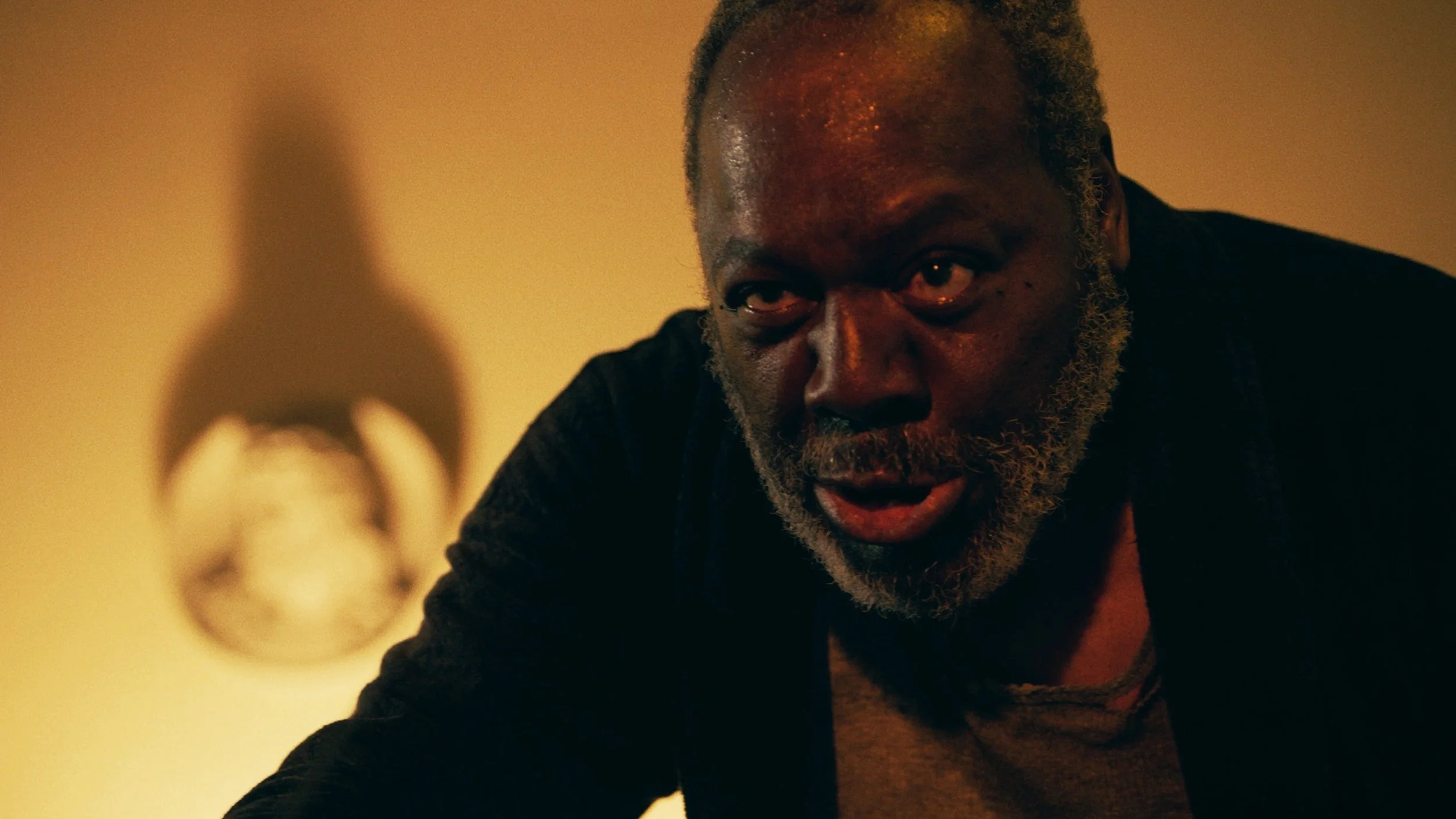The Killing of Kenneth Chamberlain
Another black man meets his end at the hands of the police in David Midell’s impressive, vivid reconstruction.
Small-scale but impressive, this second feature by the writer/director David Midell tackles material which makes it akin to such earlier works as Ryan Coogler’s Fruitvale Station (2013) and Kathryn Bigelow’s Detroit (2017). Like them, this film offers a dramatisation based on real-life events and in each case a black man meets his death at the hands of police officers behaving irresponsibly. In this instance what is portrayed is what happened in White Plains, New York in the early hours of the 19th November 2011. The victim was a seventy-year-old African-American who had served in the marines and who was living on his own coping with both a bipolar disorder and a heart condition. As evidenced by the choice of title, this is not intended as a drama of suspense in which the outcome is unknown to the audience. Instead Midell’s aim is to put the viewer in the shoes of this man, Kenneth Chamberlain, and to make us experience from the inside what he went through in the last hours of his life.
To this end the film plays out more or less in real time and is set throughout either in Chamberlain's apartment or on the landing outside. The opening scene shows how, when half-awake at 5.22 a.m., Chamberlain accidentally set off the alarm on his Life Aid caller. It was that which brought the police to his door to check out what appeared to be an emergency, but he quickly reassured Sgt. Parks and his assisting officers, Jackson and Rossi, that it had been a mistake and that he wanted them to leave. Instead, they insisted on being let in and, when he refused, they became increasingly belligerent and eventually brought in support to break down his steel door. This not only increased his determined reliance on his right to be left alone but affected his mental state since their aggressive behaviour was feeding a sense of paranoia that was also part of his condition.
The film’s concentrated focus pays off with Midell never cutting to the other end of the line when Chamberlain speaks on the phone to relatives or to the woman who has received his inadvertent emergency call. In adopting this approach, The Killing of Kenneth Chamberlain echoes the Tom Hardy film Locke (2013) and it has something of that film’s intensity with a splendid central performance from Frankie Faison as Chamberlain. The supporting cast is good, too, with Steve O'Connell as Parks, Ben Marten as Jackson and Enrico Natale as Rossi, the latter being portrayed as the one policeman, a former teacher, who feels that the approach being taken is wrong but lacks the rank to make his view heard. If Parks is insensitive, Jackson is worse since he is racist, but above all the film stresses the failure of those with authority to take account of Kenneth Chamberlain’s state both mental and physical as they went about enforcing their powers. In addition to his acting role here, Natale is a co-producer and the editor too, a fact that is even more significant because this film with its limited setting gains much from his adroit editing making it properly cinematic. Midell is also able to use sound tellingly thus enabling us to hear the clamour and confusion from Chamberlain's perspective. There is quite enough impact to make it unnecessary to build up the drama with a frequently dominant music score and the presence of one is the film's one misjudgment.
As so often with films based on actual events, one finds among the end credits an acknowledgment that some freedom was taken in the dramatisation and it may be that the extra drama stemming from Rossi's disapproval of the decisions of Sgt. Parks was invented for the film (a major sequence linked to this proves reminiscent of a scene in Henry Hathaway's 1951 classic Fourteen Hours although that is probably coincidental). In any case this aspect never becomes unconvincing while at the close there is unexpected actuality footage and audio which confirm just how close the portrayal has been to the reality. What the film does most forcefully is to show how easily police enforcement can get out of hand making us experience it vividly from the victim’s viewpoint. Faison, Midell and Natale can be well satisfied with their film.
MANSEL STIMPSON
Cast: Frankie Faison, Enrico Natale, Steve O’Connell, Ben Marten, Angela Peel, Tom McElroy, Christopher R. Ellis, and the voices of Anika Noni Rose, LaRoyce Hawkins, Eunice Woods and Linda Bright Clay.
Dir David Midell, Pro David Midell and Enrico Natale, Screenplay David Midell, Ph Camrin Petramale, Pro Des Jacquelin Stanford, Ed Enrico Natale, Music Garrett Beelow and Stephen ‘King Luck’ Williams, Costumes Amanda Vander Byl.
Redbird Entertainment/Revelations Entertainment/Voltage Pictures/Marginal Mediaworks-Signature Entertainment.
81 mins. USA. 2020. US Rel: 19 November 2021. UK Rel: 9 May 2022. Cert. 15.


